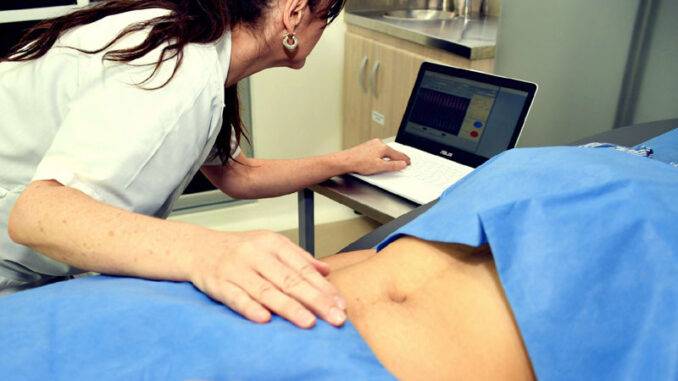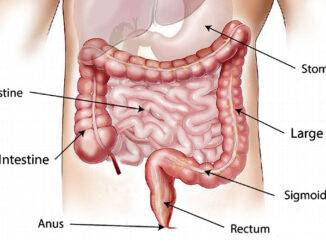
Irritable Bowel Syndrome (IBS) is a disorder that is directly linked to our guts microbiome. In other words, IBS is a result of a disbalance between the “good” and the “bad” bacteria in our guts.
So, as long as Kefir is renowned precisely for its ability to restore the right balance between the “good” and the “bad” microorganisms in our guts, it definitely can help in relieving IBS symptoms.
However, problems related to IBS are much more complex than that, so let’s jump into more details.
What is IBS?
IBS stands for Irritable Bowel Syndrome and is a common condition that normally does not cause permanent bowel damage despite its sometimes severe symptoms. However, even though IBS is not considered a life-threatening condition, it certainly impacts the day-to-day routine of many affected people and affects their quality of life.
Most patients with IBS succeed in controlling symptoms through diet and lifestyle changes, and very few of them have severe problems with IBS.
Unlike most other colon diseases, IBS is not associated with underlying intestinal inflammation and is not known to increase the overall risk of developing colorectal cancer.
Young women under 35 and patients with a family history of predisposition to the syndrome are more prone to this disease.
Approximately 10 to 15% of adults and adolescents have symptoms related to IBS, and the disease affects women twice as often as men.
It is not clear why women are amongst the most affected, but female hormones may play a role in levels of stress, and stress is considered a major contributing factor for IBS.
So, although the real cause of IBS is not positively identified, the main factors triggering IBS are thought to be the consumption of milk, carbonated beverages, alcohol, and increased levels of stress, weakened immune system, hormonal imbalance, etc.
The main symptoms of IBS usually are abdominal pain and cramps, swelling and flatulence, alternating diarrhea and constipation, and mucus in the stool. In most cases, IBS is a chronic condition with periods of aggravation and periods of remission.
Many patients with IBS also experience chronic fatigue, painful menstrual periods, increased urinary frequency, headaches, and poor sleep.
Since IBS symptoms can also be due to other, more serious gastrointestinal diseases, a medical examination is strongly recommended.
People with IBS experiencing weight loss, rectal bleeding, or unexplained vomiting should immediately consult their physician.
How is IBS usually treated?
Irritable Bowel Syndrome is considered a disease that is, by default, difficult to treat. Some sources even suggest that IBS is usually a lifelong problem. So, treatment usually focuses on the alleviation or elimination of its symptoms. Diet changes and medicines can often help control and even stop the symptoms.
As we said earlier, stress is considered a serious contributing factor for IBS, and as modern people, we are exposed to constant stress factors in urban life.
The good news here is that most of the symptoms of Irritable Bowel Syndrome are usually affected by changes in our diet and lifestyle.
While we cannot give universal advice, the first step in trying to control the symptoms of IBS is to build a healthy and balanced diet aiming at:
- Eating small portions of food, but more frequently – every 2-3 hours;
- Drinking enough fluids – 1.5 / 2 liters of water, sugar-free drinks, and decaffeinated drinks;
- Avoiding carbonated beverages;
- Limiting alcohol intake;
- Avoiding foods high in fat such as fried foods, pastries, chips, cakes;
- Avoiding artificial sweeteners such as sorbitol that can cause diarrhea and also affect the symptoms of IBS;
- Increasing the intake of high-fiber foods such as fruits, vegetables, oatmeal, nuts, whole grain bread;
- Increasing the intake of probiotic food like Kefir, which is known to restore the bacterial balance in the entire gastrointestinal tract;
Research conducted by Monash University in Australia identified a set of substances poorly absorbed by the small intestine and may become a contributing factor to IBS.
These substances are known as “FODMAP,” which is an acronym of
- Fermentables
- Oligosaccharides
- Disaccharides (including milk sugar – lactose)
- Monosaccharides (fructose)
- Polyols (sugar alcohols such as sorbitol, mannitol, xylitol, and maltitol)
This study revealed that IBS symptoms are often related and triggered by virtually the same agents that cause lactose intolerance, gluten intolerance, and Celiac disease. Kefir is proven to have a positive effect on all these conditions.
On the other hand, as a fermented product, Kefir may be perceived as a FODMAP agent too, which may also be triggering IBS symptoms.
However, it ultimately appears that the positive effects of Kefir in balancing and harmonizing the microbial population of our guts outperform by far its potentially harmful effect as a FODMAP agent.
The best ways to control the discomfort caused by IBS are changes in the diet to restore the balance in the intestinal microbiome. So, even if your doctor advises you to follow a fodmap-free diet, consumption of fermented milk products, and Milk Kefir, in particular, may considerably improve your IBS symptoms, restore the normal functions of the bowel, and help in the treatment of IBS, or at least – its symptoms.
How can Kefir help in the treatment of IBS?
If you have IBS symptoms, the first and crucial step is to change the way you eat. Improving gut health usually goes through a series of critical dietetical measures to heal your gut by stimulating bowel movements.
First of all, food should be enriched in fiber and cellulose by consuming more fruits, vegetables, and cereals (in case no gluten intolerance is detected). Besides stimulating bowel movements, these products rich in fibers will act as prebiotics to stabilize the population of good bacteria in the guts and optimize the gut flora.
The intake of probiotics is another natural way to deal with Irritable Bowel Syndrome. As we know, probiotics are non-pathogenic microorganisms that naturally live in the gut and are necessary for their physiological functions. Probiotics can be taken through various foods but are most present in yogurt, Kefir, or other fermented milk products made of cow milk or goat milk.
With these two steps:
- Eating more plant fiber and
- Taking probiotic food like Kefir
… most people with IBS can satisfactorily manage IBS symptoms, preventing any aggravation of their condition.
As we already stated before, the exact causes of IBS are unknown, but a possible contributing factor is considered to be a series of changes in the microbial population of the guts. These could be bacteria, fungi, and viruses, which normally reside in the intestines and play a key role in health. Research shows that the guts microbiome (the microbial population inside the intestines) in people with IBS might differ from those in healthy people.
Since Kefir, and especially Milk Kefir, is widely known to colonize the guts with good bacteria and to restore the bacterial balance in the guts, it is beyond any doubt that Kefir can contribute to the treatment of IBS.
The people affected by IBS need to understand that a more natural and relaxed lifestyle, with a long-term shift of their diet towards regular use of probiotics, can relieve IBS symptoms and improve their daily lives without the need for heavy medications.
Finally, it is important to remind that Kefir is nothing but food. It’s a potent food rich in probiotics, minerals, calcium, protein, and vitamins, but it’s still only food. Not a medication. And as such, Kefir cannot and should not be used as a primary tool to fight diseases (IBS included) but as a valuable addition to carefully planned dietetic regimes and treatment plans.



